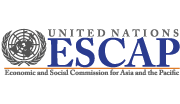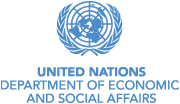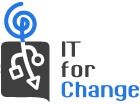The 2030 Agenda for Sustainable Development adopted by UN Member States in 2015 affirms that “the spread of information and communication technology and global interconnectedness has great potential to accelerate human progress, to bridge the digital divide and to develop knowledge societies.” Women’s empowerment through E-Government can, indeed, accelerate the achievement of Goals and Targets across the 2030 Agenda. The new EGovforWomen Online Toolkit directly contributes to Sustainable Development Goals 5, 9, 10 and 16.
This online platform is an innovative public resource related to the design and implementation of gender-responsive E-government institutional ecosystems in the Asia-Pacific region. The toolkit represents the first region-wide toolbox to support the gender-mainstreaming of E-Government. Through a set of 5 comprehensive modules, it provides key pointers for policymakers on gender-responsive design of e-service delivery, e-participation and connectivity initiatives, and introduces a capabilities-based approach to outcome evaluation of e-government for women’s empowerment.
- Gender, governance and e-government
- Gender-responsive e-service delivery
- Gender-responsive e-participation
- Gender-responsive connectivity architecture
- Assessing gender-responsiveness of e-government ecosystems
Each module is oriented towards a clearly identified target group, and is geared towards the attainment of specific learning outcomes. Therefore, all modules have clearly delineated sub-units to enable step-by-step learning and exercises/ assignments to test knowledge attainments (including a case study, food for thought, group assignments and quizzes). Content of the modules is drawn from the regional research on e-government for women’s empowerment in Asia and the Pacific conducted by UNESCAP and IT for Change in 2015-16; as well as a scan of open source documentation of good practices in gender and e-government in the region, and in other contexts.
In the implementation of this project, ESCAP has partnered with IT for Change, India (www.ITforChange.net). IT for Change is a not-for-profit organisation that seeks to build a socially just and gender-equitable information society for the global South. Towards this, it is engaged in policy research, advocacy and field practice in the domains of gender, digital technologies and development; ICTs in education; e-government; Internet governance, digital rights; and data for development. At IT for Change, this project was led by Anita Gurumurthy, Executive Director with support from Nandini Chami, Senior Research Associate.
This project has been made possible with the generous funding from the Government of the Republic of Korea, through the Korea-ESCAP Cooperation Fund (KECF).
About us
The Economic and Social Commission for Asia and the Pacific (ESCAP) serves as the United Nations’ regional hub promoting cooperation among countries to achieve inclusive and sustainable development. The largest regional intergovernmental platform with 53 member States and 9 associate members, ESCAP has emerged as a strong regional think-tank offering countries sound analytical products that shed insight into the evolving economic, social and environmental dynamics of the region. The Commission’s strategic focus is to deliver on the 2030 Agenda for Sustainable Development, which it does by reinforcing and deepening regional cooperation and integration to advance connectivity, financial cooperation and market integration. ESCAP’s research and analysis coupled with its policy advisory services, capacity building and technical assistance to governments aims to support countries’ sustainable and inclusive development ambitions.
The United Nations Department of Economic and Social Affairs (UN DESA) promotes and supports international cooperation in the pursuit of sustainable development for all. It addresses a range of cross-cutting issues that affect peoples’ lives and livelihoods, especially the most vulnerable. In providing a broad range of analytical products, policy advice and technical assistance, UN DESA effectively translates global commitments in the economic, social and environmental spheres into national policies and actions and plays a key role in monitoring progress towards the 17 Sustainable Development Goals.



